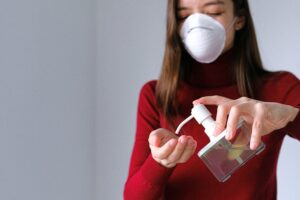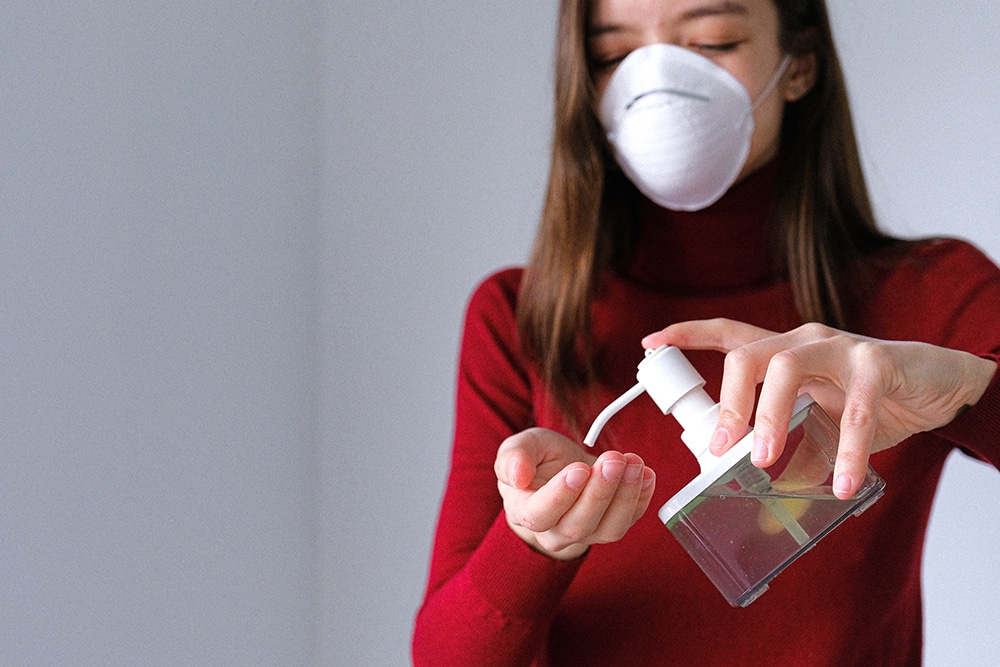
To help you understand just how much work addiction treatment centers have been putting in during the pandemic, we are going to discuss all the different challenges and triggers that the pandemic has brought upon the industry. We are also going to discuss how the pandemic has affected people’s mental health.
Challenges Rehab Centers Face During the Pandemic
Jump to Section
The coronavirus pandemic has put countless restrictions on the way we all live. One of these restrictions is not being able to congregate in large groups. Not being able to congregate together in large groups has caused many businesses to shut down. As a result, the economy has drastically gone down and unemployment rates have skyrocketed.
Because the American economy is down, the funding for many industries has been cut. One industry that has been seeing increased taxes and decreased funds is the healthcare industry. In fact, COIVD-19 is taxing all areas of the healthcare system, including treatment and recovery services.
Cuts in Funding and Support
Rehab centers are receiving their very own restrictions and withdrawal of funding and support from the government. In fact, many people with substance use disorders cannot receive adequate access, protection, or support from the healthcare system right now. This is particularly true when it comes to receiving medication-assisted treatment (MAT).
The quantity of addiction treatment medications being dispensed right now is low. The number of patients that are receiving addiction treatment prescription medications right now is also low. On the bright side, the Substance Abuse and Mental Health Services Administration (SAMHSA) is allowing stable opioid treatment patients to receive 28-days’ worth of medications through the request of their state. That way, people that are in recovery for opioid addiction can still receive the help that they need.
While some opioid patients are able to still receive their detox and treatment medications, the fact that there are still so many people that are in recovery for a variety of different substances that cannot receive such medications and treatment right now is troublesome. If changes are not made to the addiction treatment industry throughout the rest of COVID-19, there are going to be massive amounts of relapses.
No More Group Therapy or Support Groups
To take things a step further, everyone during COVID-19 is advised to social distance themselves from one another. In fact, strangers are supposed to stand six feet apart from one another to lessen the spreading of the virus.
Because of these strict social distancing rules, many treatment centers are no longer offering group therapy or support groups. One staple of addiction treatment is the support that groups of people that are suffering from similar addictions give to one another. Therefore, stripping this aspect of addiction treatment away from patients will make it harder for them to upkeep their recovery.
Increase in Unemployment Rates Leading to Increases in Substance Abuse
As businesses shut their doors, there are going to be fewer jobs available. This means that unemployment rates will increase. Because unemployment rates are oftentimes parallel with drug and alcohol misuse, addiction rates will also likely increase right now. Unfortunately, as the rates of addiction are increasing during COVID-19, the amount of addiction treatment available is decreasing.
Increase in Trauma and Mental Illnesses
Both children and adults alike are getting depressed during the pandemic. This is partly due to the stress that hearing all of the negativity on the news about the virus gives you. For children, enduring such stress can feel traumatic.
As a result, depression and anxiety rates in the and country are increasing. In fact, the U.S. Census Bureau reported that ⅓ of Americans have shown signs of clinical depression and anxiety during the pandemic.
With the increase in mental illness, comes people using substances to help them cope. This, once again, means that the rates of addiction will likely increase during COVID-19. This also means that there will likely be more people in need of co-occurring disorder treatment during this pandemic. Because there are limited treatment centers and programs available during COVID-19, it makes fighting addiction harder, despite there being more people in need of it.
Aspects of COVID-19 That Could Trigger Relapse
There are many challenges rehab facilities and programs must face to continue operating during COVID-19. There are also specific aspects of these challenges that will trigger relapse in many people. Some of the most consistent triggers of relapse during the coronavirus are the following.
Isolation
One restriction that is a consistent factor and relapse trigger within all the challenges that COVID-19 causes the addiction treatment industry to face is isolation. Isolation during the pandemic occurs because of the fact that people are required to stay away from one another so they do not get each other sick.
Isolation triggers relapse in addicts because people are social beings by nature. As a result, spending too much time alone in isolation can make addicts get down on themselves and think negative thoughts that could cause them to use drugs. Isolation also triggers relapse in addicts because people that are still in treatment recovery are vulnerable. Thus, they need the support of their peers to keep them motivated to stay sober.
It also does not help that isolation is a common mental illness symptom. This means that isolation during COVID could easily trigger depression in an addict. As a result, the recovering individual may misuse substances to cope.
Stress
COVID-19 causes stress in many different ways. One way that the virus causes stress is by causing you to constantly worry about you and your loved ones’ health. Another way that the virus causes stress is by providing you with a level of uncertainty about the future of the virus.
Stress during the pandemic may even come from you or your loved ones losing your jobs due to the virus. Whichever way that your stress develops, it can easily trigger someone into relapsing.
Unemployment
The COVID-19 pandemic is causing unemployment rates to reach new heights. This is because countless companies and small businesses are closing their doors due to people not being allowed to gather in groups. It also doesn’t help that people are hesitant to go out to places and spend money at businesses during the pandemic because they don’t want to get sick.
Rising unemployment rates can trigger relapse because of how stressful it is. To avoid feelings of stress and worry, many people’s first reaction is to numb their emotions by using substances. As a result, fighting addiction when going through unemployment during the coronavirus is very difficult.
Telehealth Addiction Treatment
Despite all of the challenges rehab centers are facing during the pandemic, there is one thing that is helping the addiction treatment industry at this time. That thing is telehealth. Telehealth is a digital addiction treatment service that provides remote help to people who need it. This approach to treatment benefits addiction rehab during the pandemic in a number of ways. So, those who are fighting addiction can continue to do so in a safe manner.
It Does Not Require You to Physically Interact With Anyone
One way that telehealth treatment benefits rehab during the pandemic is that it allows you to have your treatment and therapy sessions with professionals while not putting your health in danger. This is because all discussion during telehealth treatment is remote and online.
It Is Flexible
Another benefit of telehealth treatment is its flexibility. Because telehealth treatment is remote, you can schedule your treatment sessions with your addiction specialist or therapist at any time of the day. As long as both you and your addiction specialist or therapist agree to the time and date, you are good to go.
It Provides Greater Access
Because telehealth treatment is remote, you no longer have to choose your treatment center based on your location. This means that if you find a high-quality treatment center that specializes in what you need help in far away from where you live, you can still receive treatment there through telehealth. With telehealth addiction treatment, the world is your oyster.
It Cuts Patient Cost
Because telehealth treatment is remote, you do not have to pay for the technology systems or in-person service at the rehab facility. This means that telehealth saves you money on your addiction treatment.
Fighting Addiction Together: Contact Free By The Sea Today!
If you are looking for a place to receive addiction treatment during COVID-19, look no further. Here at Free By The Sea, we offer everything from group therapy to dual diagnosis treatment, to telehealth treatment, and more. Whether you want to stop by our facility to receive treatment or receive it online, we’ve got you covered. To learn more about all the ways that Free By The Sea is fighting for addiction during the pandemic, contact us anytime! We are available 24/7.

Dr. Richard Crabbe joined our team in 2019 as our psychiatrist and medical director. He attended the University of Ghana Medical School where he became a Medical Doctor in 1977. From 1978 through 1984, he was a medical officer in the Ghana Navy and provided a variety of services from general medicine to surgeries. He received his Certificate in General Psychology from the American Board of Psychology and Neurology in 2002.



